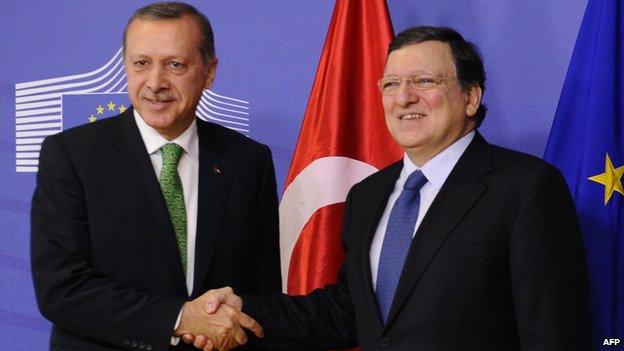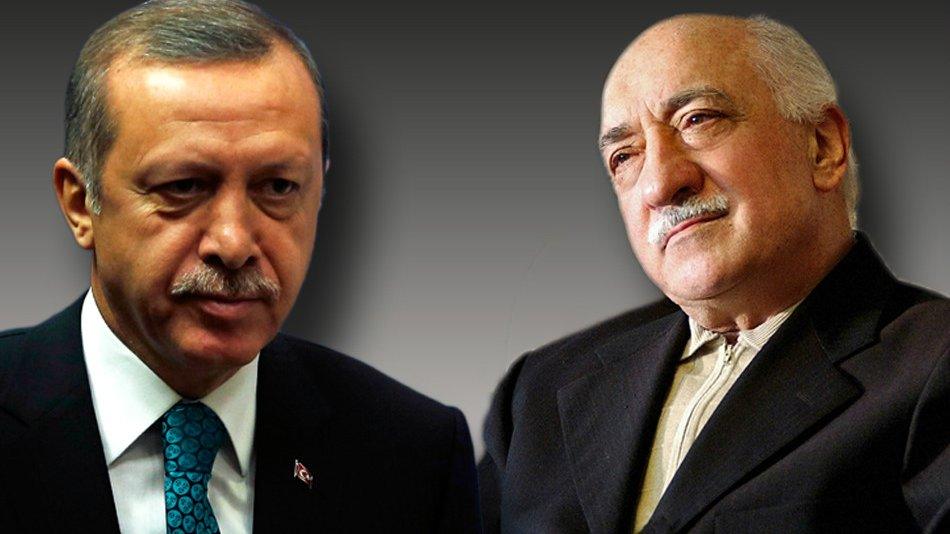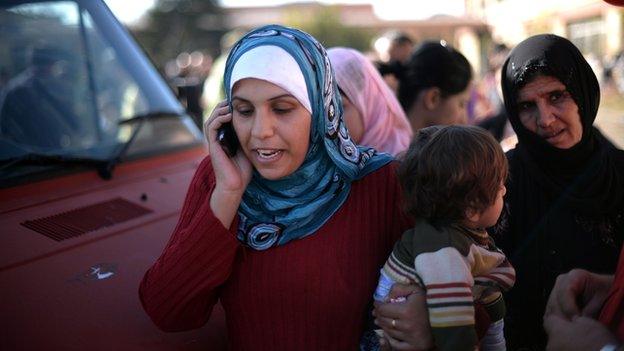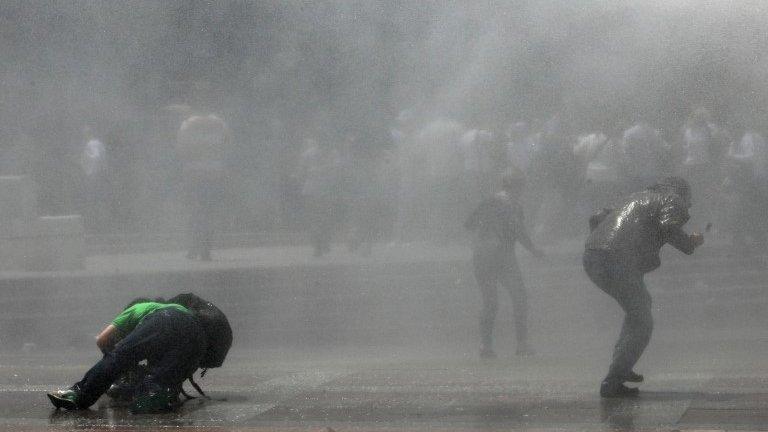EU presses Turkish PM Erdogan over democratic reforms
- Published

Mr Erdogan (left) sought to reassure the EU about rule of law in Turkey
EU leaders have urged Turkish Prime Minister Recep Tayyip Erdogan not to backtrack on democratic reforms required for its EU membership bid.
Mr Erdogan visited Brussels amid EU concerns over a purge of officials in Turkey's judiciary and police.
He defended his actions, saying "the judiciary should not go beyond its defined mission and mandate".
Turkey's EU accession negotiations were launched in 2005 but progress has been very slow.
Mr Erdogan was paying his first visit to Brussels in five years.
Warning on interference
In a statement, external after the talks, European Council President Herman Van Rompuy, who chairs EU summits, said he had stressed the need for Turkey to stick to the rule of law and separation of powers.
"It is important not to backtrack on achievements and to assure that the judiciary is able to function without discrimination or preference, in a transparent and impartial manner," he said.
The purge of Turkish officials took place after several of Mr Erdogan's allies had been arrested over a corruption scandal in December. He blamed a "foreign plot".
The scandal has pitted the prime minister against a former ally, US-based Islamic scholar Fethullah Gulen, who has many supporters in the police and judiciary.
The BBC's James Reynolds in Istanbul says the Turkish government is fed up with the slow pace of EU membership talks and wants a formal timetable for accession.
But EU Commission President Jose Manuel Barroso reiterated "the European concerns", external about the latest events in Turkey.
He said that during their meeting Mr Erdogan "gave us reassurances of his intention to fully respect the rule of law, the independence of the judiciary and, generally speaking, the separation of powers".
Turkey's accession talks resumed in November, after being suspended for nearly three-and-a-half years.
However, several EU countries, notably Germany, France and Austria, have deep reservations about Turkey joining the EU. Critics believe it is culturally far-removed from Europe, and that because of its sheer size it could change the nature of the EU.
Supporters say it would be a dynamic addition to the bloc.
Monitoring medics
There are 35 policy areas, or chapters, in which candidate-states must meet EU standards in order to join the 28-member bloc. So far Turkey and the EU have only opened 14 chapters, and just one has been provisionally closed.
Eight chapters remain frozen because of a long-running trade dispute between Turkey and Cyprus.
The EU leaders said they had agreed with Mr Erdogan that an urgent solution must be found to the Cyprus dispute.
The EU's 2013 progress report on Turkey , externalcriticised "excessive force" used by police against demonstrators, along with other human rights violations.
Last week Turkey adopted a law making it a crime for doctors to provide emergency first aid without government authorisation.
Some medical professionals see it as a tool to prevent doctors and other medics from treating protesters injured in clashes with police. The US-based Physicians for Human Rights (PHR) says action was taken against medics during anti-government protests last June.
The PHR condemned the new law in a statement,, external saying "this kind of targeting of the medical community is not only repugnant, but puts everyone's health at risk".
- Published7 January 2014

- Published22 August 2023

- Published16 December 2013

- Published24 December 2013

- Published2 September 2014